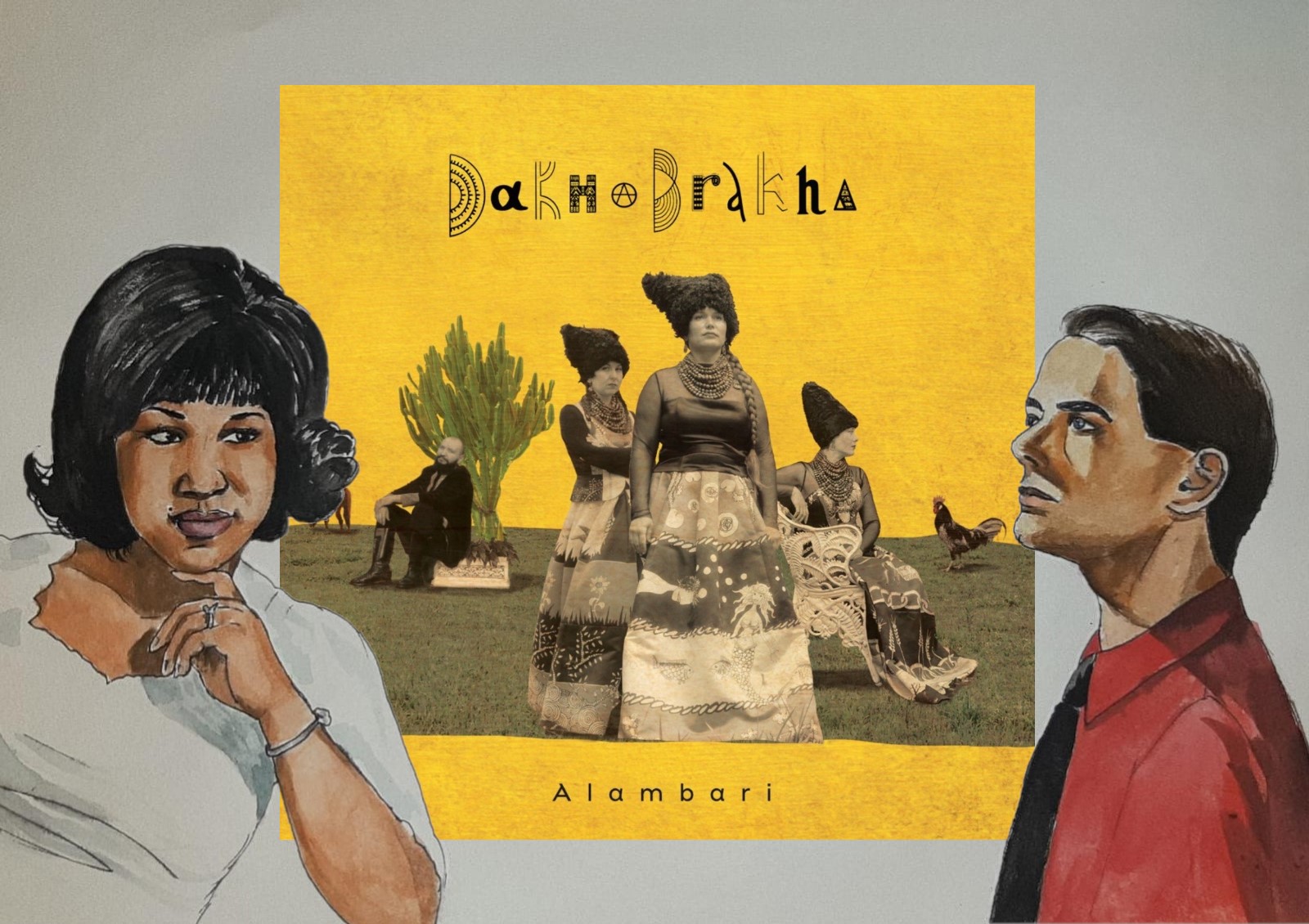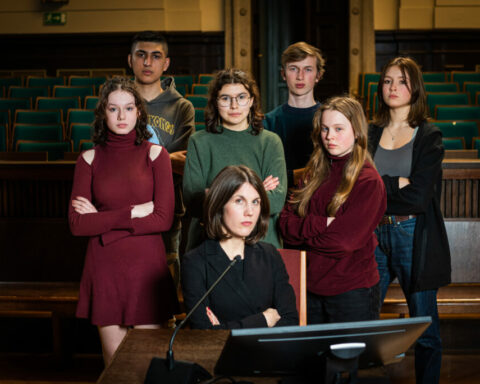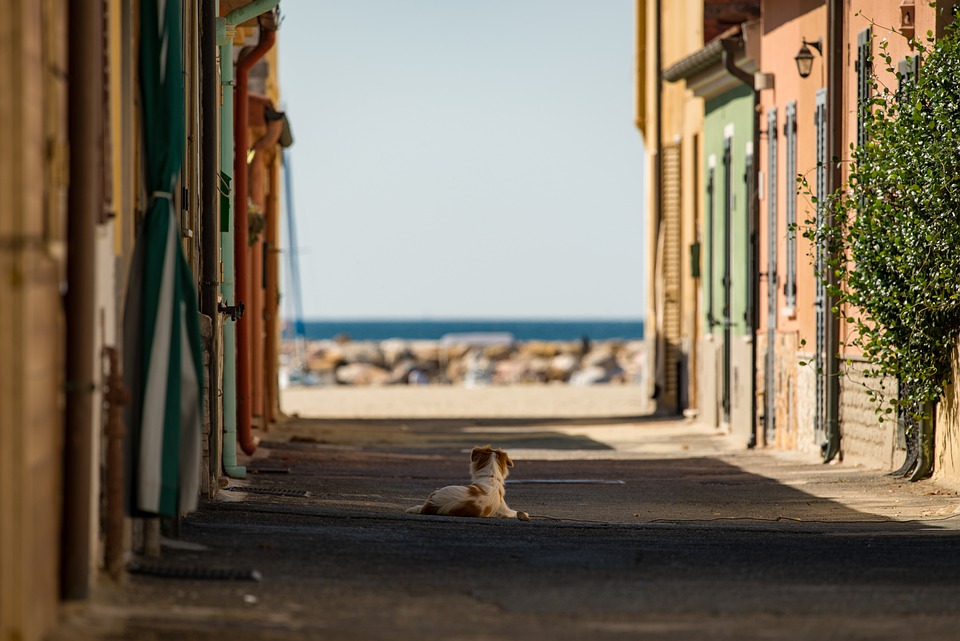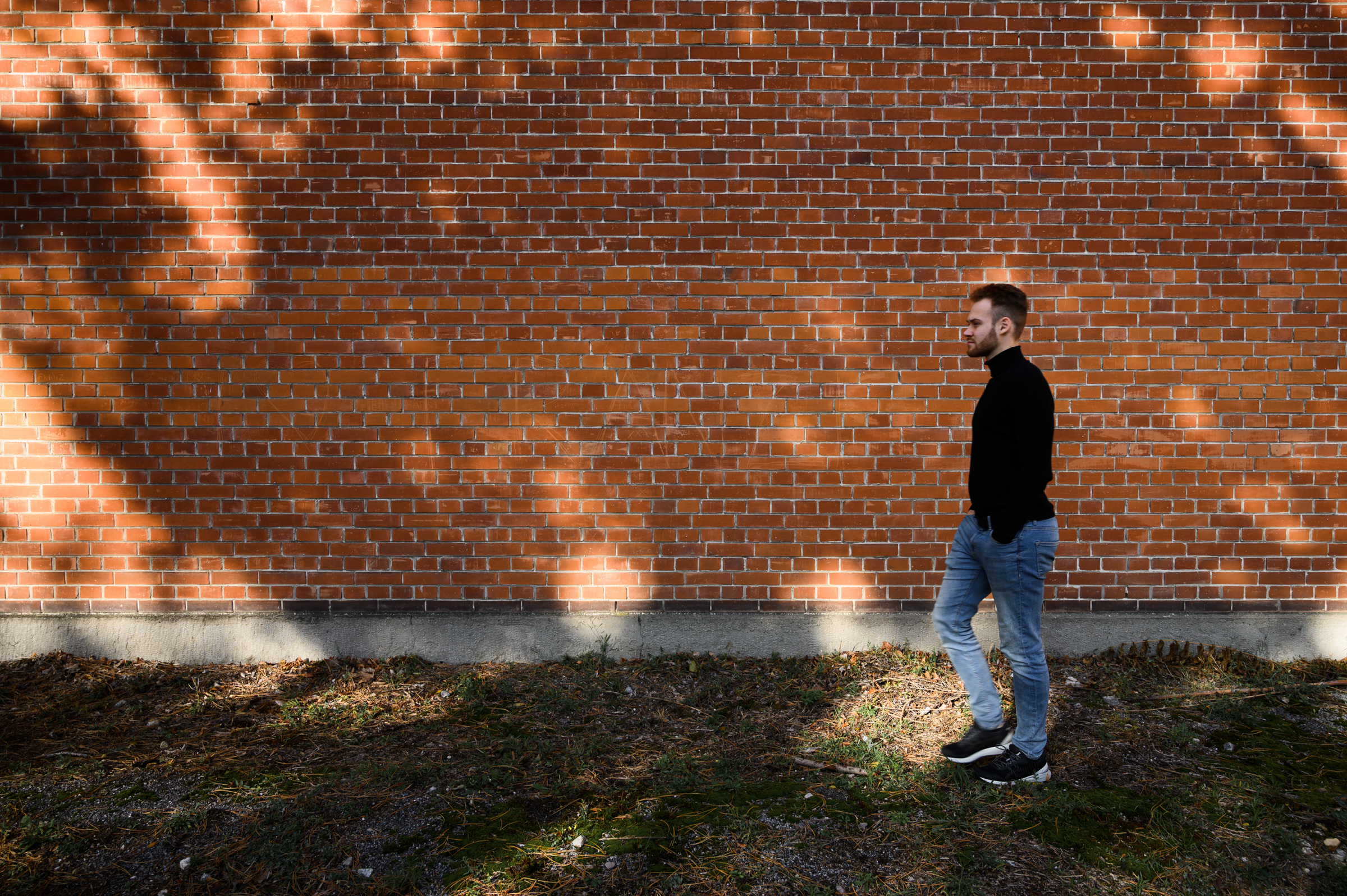Dakhabrakha – Alambari (no label, 2020)
Ukrainian Folk Music, Avant-Folk, „Ethno-Chaos“ | Ukraine
Dakhabrakha (or ДахаБраха in Cyrillic, German transcription “Dachabracha”) are a self-proclaimed “ethno-chaos” band who became known for mixing the traditional music of Ukraine and other Eastern European countries with influences from traditional music from all over the world, as well as Western Rock and Pop. In addition to instruments traditionally used in Ukraine like the accordion, bass and cello African percussion is commonly heard in their songs. In the past they have also incorporated overtone singing and didgeridoos into their music. On Light (2010, АртПоле) the band even experimented with electronic sounds and Rap.
Dakhabrakha’s lineup consists of three women and one man, and their songs often have the women singing in a traditional Eastern European polyphonic style, with lots of interesting vocal melodies and harmonies. All the members are highly skilled singers and a lot of their music is carried by the vocal arrangements.
The group’s name is a mashup of the Ukrainian words for giving and taking – Давати (davati) and Брати (brati), highlighting their concept of travelling around Ukraine and other countries, recording local Folk music, combining it with other influences and giving it back to the people living there. It is also a play on the Kyiv Center of Contemporary Art also called “DAKH” where the group was founded in 2004 by the avant-garde theatre director Vladyslav Troitskyi.
Alambari is the group’s sixth studio album to date. The title is not Ukrainian instead it’s the name of the Brazilian village where it was recorded.
What’s new?
While their previous record, The Road/ Шлях was a rather quiet, drone-y affair with slow and sparse songs, Alambari is much more upbeat and energetic. The album features some their fastest songs so far which combine the raw energy of their live shows with skillfully crafted song structures. Many amazing build-ups lead to explosive climaxes. The record starts out relatively slow and sparse though –the first six minutes of “Dostochka” feature just bass, percussion and vocals. Eventually, an accordion joins in, the vocals get more intense and build up to a grand finale within the last minute. The energy of the song is mostly carried by the female vocals which over the course of the song change from rather soft to a powerful singing style that is a typical element of many traditional music styles of Eastern Europe.
It’s all about the vocals
This focus on vocals is very typical for the band and is even more present than it was on The Road. “Khyma” even plays with a few short a cappella parts, that fade into instrumental crescendos. These get more intense with each repetition, before the main section eventually starts. It gives the track a very playful feel in spite of the vocals sounding quite sad.
The super groovy and catchy “Vynnaya Ya” features awesome call-and-response singing in the chorus as well as the only male member Marko Halanevych imitating a brass instrument with his voice. Near the end we get a bluesy sounding piano accompanying the singers finishing off the piece.
Perfecting the “Ethno-Chaos”
What is also new for the band is their use of Bulgarian-style open throat singing which can be heard on “Lado”, the most upbeat and energetic song on the album. It is basically an acoustic Rock arrangement of a Bulgarian Folk song featuring driving percussion, amazing vocal harmonies, as well as energetic strings and a repetitive accordion melody. In addition to the open throat singing there are also shouted vocals by all members.
Lado is followed by the much calmer “Im Tanzen Liebe” which has the group singing in German for the first time. It is based on Heinrich Heine’s poem “Die Lore-Ley”. The lyrics fit the melancholic vibe of the album very well and the imagery used here is very similar to a Folk song. By having Bulgarian, German, English and Ukrainian lyrics Dakhabrakha really perfected their concept of “ethno-chaos” on this album. The fact that it was recorded in Brazil adds to that.
The album’s closer which also happens to be the title track starts with a recording of rain falling which sets the mood for the calm vocals and dreamy instrumentation. I don’t think they ever made something this meditative and ethereal before and one certainly wouldn’t expect the album to end like this after hearing “Torokh” and “Lado”. I’m glad that it does though – they really couldn’t have picked a better closing track.
Conclusion
Dakhabrakha delivered another great album that sounds very much like them but does many things a little different than its predecessors.
The songs feel more playful and creative than ever before but don’t wander too far off into avantgarde territories . The music remains rather accessible.
The songs are all relatively long with the longest one reaching almost eleven minutes but due to their interesting structures there’s not a single boring or dull moment on here. The mix of different influences works very well. I think this might just be my favourite Dakhabrakha album so far and I’m surely going to spend some more time with it.
Due to its variation, its playfulness and the energy bursts on some songs I can also see it working very well as an introduction to the band for people unfamiliar with them (or even Eastern European Folk music in general).
Discovering Dakhabrakha lead me down the rabbit hole of exploring this facinating genre and in the process finding some quite awesome artists and albums. I hope it will do the same for at least some of the people who will listen to Alambari.
Favourite songs: “Vynnaya Ya”, “Lado”, “Alambari”
Personal rating: 9.5/10







Hello Benjamin. I hope you speak English, or French? Just to congratulate you for your very rich a nalysis a of Alzmbari. One or twi remarks, though: open throat traditional singing is not exclusive to Bulgaria… They use it in Ukraine and Georgia and other countries, and DB yet covered one Bulgarian song in The Khmeleva Project album, the song Yelena. Olena and especially Nina master this vocal technique. And you forgot to mention Rembetika in the last album. This tune is for me the “ point d’orgue“ of Alambari. Marko and Olena seem to dialogue, and Marko shows his comedian skills. Olena pure voice is a wonder I can’t get enough. And Khima is not that sad, Olena (parodie) academic singing style to make fun, the song is about some noble Dame who’s boring… Anyway the rest of your description is okay for me! I give you 8 /10! Thanks and good luck for your studies! Tschuss.